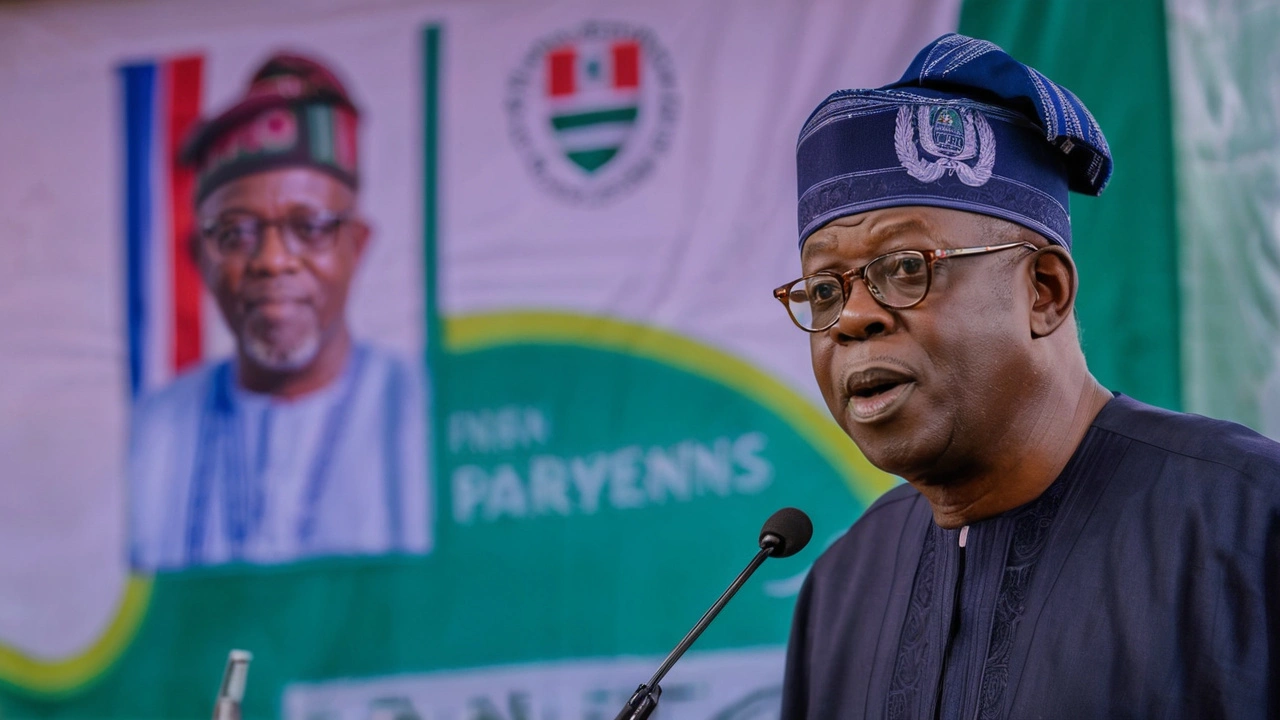Tinubu Declares End to Petrol Subsidy and Multiple FX Rates: A New Dawn for Nigeria's Economy
President Bola Tinubu has taken bold steps to set a new course for Nigeria's economic future. He has firmly declared that the petrol subsidy and multiple foreign exchange (FX) rates acted as a constricting force on the nation's economic prospects. His recent policy changes, which put an end to these long-standing measures, are designed to stimulate sustainable growth and development.
The Economic Constraints of Subsidies and Multiple FX Rates
The petrol subsidy, a topic of intense debate and controversy in Nigeria, has long been seen as a burden rather than a benefit. Originally introduced to make fuel more affordable for Nigerians, the subsidy often resulted in market distortions and financial burdens on the government. It consumed a significant portion of national revenues, money that could have been invested in other critical sectors. President Tinubu described the subsidy as a 'noose around the jugular of Nigeria’s economy,' underscoring the urgent need for reform.
Multiple foreign exchange rates, on the other hand, created a complex and often inefficient financial landscape. The existence of multiple rates led to arbitrage opportunities, where some could profit from disparities between the official and parallel markets. This setup hindered transparent and equitable economic transactions, and discouraged foreign investment. It also created a barrier for businesses operating in an environment where exchange rate risks were unpredictable and difficult to manage.
A Plan for Economic Revival
With the abolition of the petrol subsidy and the introduction of a unified exchange rate, Tinubu aims to implement a more transparent and rational economic policy framework. The funds saved from ending the petrol subsidy are expected to be redirected to crucial sectors like education and healthcare, thus promoting national development. This reallocation of resources aims to provide long-term benefits to Nigerian citizens, improving quality of life and fostering a more educated and healthier population.
The move to a single, unified exchange rate eliminates the confusion of dealing with different rates for different transactions. This should facilitate easier trade relations, attract foreign investments, and improve overall economic stability. A unified FX rate will also enhance the competitiveness of Nigerian businesses on an international scale, making the country a more attractive destination for business and investment.
Impacts on the Nigerian Economy
However, these policy shifts come with their own set of challenges. Eliminating the petrol subsidy is likely to lead to an increase in fuel prices, which can have a ripple effect on the cost of goods and services. For many Nigerians, higher fuel costs could strain household budgets, leading to potential pushback from the public. On the other hand, a unified exchange rate may lead to an initial devaluation of the naira, making imported goods more expensive and impacting inflation rates.
Economists suggest that while the immediate effects may include discomfort and adjustment pains, the long-term benefits could far outweigh these early challenges. By fostering a more stable and transparent economic environment, these changes are expected to boost investor confidence, encourage foreign direct investment, and facilitate more sustainable economic growth.
Redirecting Government Funds to Productive Sectors
One of the most significant aspects of Tinubu’s strategy involves the reallocation of funds previously earmarked for subsidies. By channeling these funds into education and healthcare, the government hopes to build a more robust foundation for future generations. Investing in education will equip young Nigerians with the skills necessary to compete in a global marketplace, while improved healthcare services will ensure a healthier population, capable of contributing to economic activities.
This shift in focus is aimed at creating an economy that is not only stronger but also more inclusive. By addressing fundamental issues in critical sectors, Nigeria can work towards reducing inequality, creating jobs, and fostering a more resilient economy.
Public Reception and Political Implications
The public reception of these measures remains mixed. While some citizens and business leaders applaud the move towards a more pragmatic economic policy, others express concerns over the immediate financial strain it may impose. The political landscape in Nigeria, known for its volatility, could see significant shifts as these policies take effect. Nevertheless, Tinubu’s administration appears steadfast in its commitment to these reforms, convinced that the short-term sacrifices will yield long-term gains.
Critics argue that the government must also ensure that the funds redirected to education and healthcare are effectively managed and used appropriately. Transparency and accountability will be key in gaining public trust and ensuring that the anticipated benefits reach all segments of society.
Conclusion: A Roadmap for Sustainable Growth
President Bola Tinubu's decision to eliminate the petrol subsidy and unify exchange rates marks a significant turning point in Nigeria's economic policy. While the road ahead may present various challenges, the potential for a more prosperous and stable economy is within reach. By prioritizing transparency, equitable resource allocation, and long-term development, Nigeria can begin to unlock its full economic potential, fostering growth that benefits all its citizens.


Chris Richardson
August 5, 2024 AT 09:31Mark Archuleta
August 6, 2024 AT 19:21Pete Thompson
August 7, 2024 AT 23:40Richard Berry
August 9, 2024 AT 21:30Sandy Everett
August 10, 2024 AT 10:16J Mavrikos
August 10, 2024 AT 23:22Stuart Sandman
August 12, 2024 AT 09:28DJ Paterson
August 13, 2024 AT 19:02Robert Shealtiel
August 13, 2024 AT 21:04Marrissa Davis
August 14, 2024 AT 16:52Sean Brison
August 15, 2024 AT 10:00